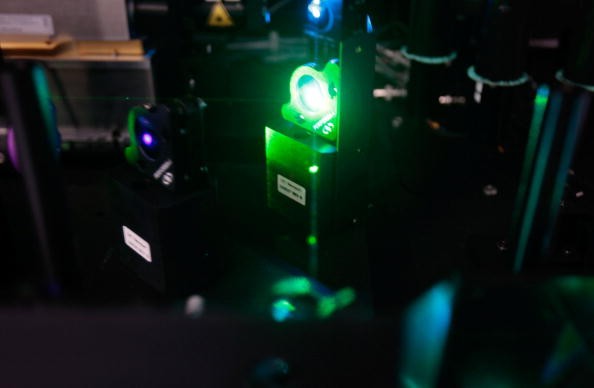Scientists in China have created the brightest ultraviolet light in the world for use in capturing atoms and molecules that may shed more light on micro-materials.
The Chinese Academy of Sciences (CAS) announced on Sunday that they have successfully developed the Dalian Coherent Light Source (DCLS), an experimental device capable of generating an extreme ultraviolet frequency free-electron laser.
"We expect the new facility will become a new machine for important scientific discoveries and international scientific collaborations," Zheng Yonghe, the policy bureau director at the National Natural Science Foundation of China, which funded the organization of the project, told the China Daily newspaper.
The DCLS is one of many tools the scientists can use to observe the movement of atoms and molecules and the resulting data can then be used to further understand or even harness physical chemical processes such as the formation of smog, China Daily said in its report.
"That is why we need to develop free-electron laser light sources, which have wide applications in the study of basic energy science, chemistry, physics and atmospheric sciences," said Yang Xueming, deputy director of the Dalian Institute of Chemical Physics at the academy.
The free-electron laser light works by charging up atoms and molecules and exposing them to various electromagnetic detectors.
Several high-gain free-electron laser light source facilities that focus on X-rays and soft X-ray light waves have been successfully developed across the globe.
However, free-electron laser light sources in the energy band of extreme ultraviolet, which has lower energy than X-ray or soft X-ray, have yet to be developed, Yang said.
"Extreme ultraviolet free-electron laser light sources are especially useful for sensitive detection of atoms, molecules and clusters as well as probing valence electronic structures of all kinds of materials," he added.
The DCLS facility was built in joint collaboration by the CAS Dalian Institute of Chemical Physics, Institute of High Energy Physics and Shanghai Institute of Applied Physics, the University of Science and Technology of China, and Tsinghua University.



























